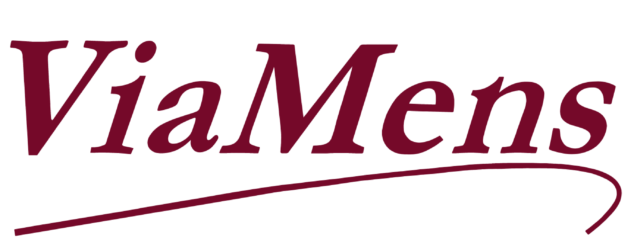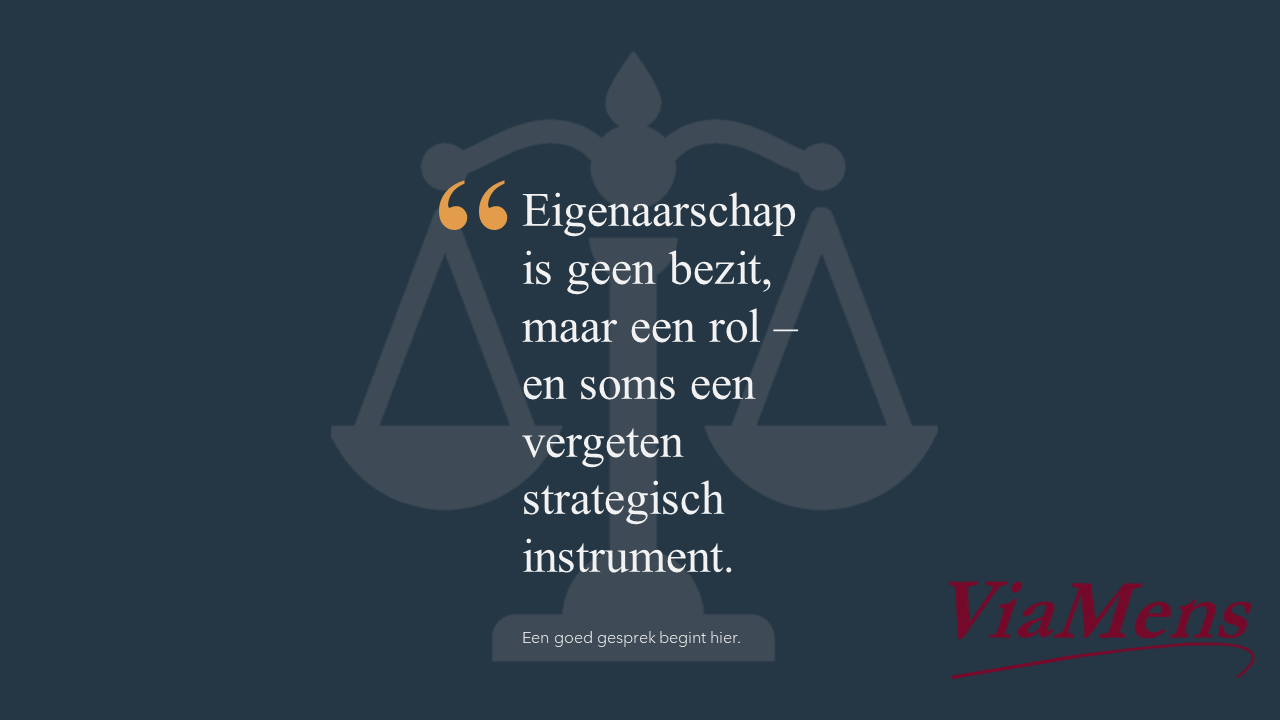[Dutch version can be found here]
Who’s really in charge here?
In many family businesses, that’s not an easy question. Is it the founder who built the company from the ground up? The children who formally hold the shares but struggle with their role? The cousin who has no management position but knows every employee and feels responsible for the company culture? Or the external CEO, appointed by the family, who runs the daily operations?
What happens when formal control doesn’t align with real influence? And what if the family itself is unsure what responsible ownership actually looks like today?
Recent academic insights on ownership dynamics in family businesses make it clear: ownership is not a fixed position, but a living interaction of relationships, structures, and expectations. Ignoring these dynamics increases the risk of internal stagnation — especially when things are going well externally.
Ownership is not possession, but a role
Many entrepreneurs still associate ownership with shares: who owns what? But that says little about involvement, decision-making, or strategic direction. In family businesses, owners are rarely distant investors. They are emotionally invested, think in generations, and often feel a moral responsibility toward employees and the broader community.
Yet ownership is seldom clearly defined. In practice, tensions often arise between family members:
- What may I say if I have no formal leadership role?
- Should dividends be treated as income — or as a return for taking risk?
- Who gets to define what ‘good governance’ means?
At ViaMens, we see these questions rarely addressed directly — until conflict arises.
Case study 1: The invisible fault line
A construction company is led by two brothers. A third brother and their sister are passive shareholders. The shares are neatly divided. For years, everything seems stable — until a major dispute breaks out over a proposed investment in digital infrastructure.
The brothers running the business want to move fast. The others feel excluded. At the next shareholders’ meeting, the situation escalates: accusations of secrecy, sidelining, and broken trust.
ViaMens is brought in to facilitate dialogue. What becomes clear is this: everyone feels responsible — but in very different ways. No one has ever discussed what ownership actually means to each of them.
Through a series of guided conversations, clarity emerges:
- The active brothers gain recognition for their operational role.
- The other two regain confidence in their strategic oversight position.
- A family charter is created to formalize agreements on decision-making, communication, and dividends.
The result: renewed trust, clarity of roles, and space to shape a long-term shared strategy.
From role confusion to role clarity
ViaMens approaches ownership as both a formal and relational reality. In many cases, it’s not the legal structure that causes stagnation, but the absence of a shared understanding of roles — or worse, unspoken expectations that collide.
We often see tension in three areas:
- Relationships – when multiple family members are owners but with different levels of involvement. Who decides? Who informs whom? Who protects the family’s values?
- Structures – companies that started small but have grown into complex organisations with multiple generations and shareholders. The old structure no longer fits the current reality.
- Processes – succession, sale, investment, conflict resolution. Without clear processes for decision-making, emotions take over. Even minor disagreements can escalate quickly.
Balancing rights and responsibility
Healthy ownership is about balance: between rights and duties, between taking and giving, between power and accountability. Many family owners struggle with this balance — especially when they are no longer active in the business.
Legal optimisation alone rarely solves this. It starts with having the right conversation.
ViaMens supports this through:
- Ownership dialogues – helping families understand each other’s perspectives, concerns, and ambitions.
- Governance structures – such as shareholder agreements, family constitutions, or family councils.
- Succession planning – addressing both the rational and emotional dimensions of transfer.
Case study 2: The next generation steps in
A food production company is preparing for succession. The founder is in his early sixties. His three children each have different lives: one works in the company, one is in healthcare, the third in finance.
The parents want to divide shares “fairly” — hoping this creates harmony. But tension starts to rise among the siblings. Who will lead? Should profits be shared equally with those not involved? Can a business thrive with three captains on the sidelines?
ViaMens is asked to guide the process. Over six months, we work not only on legal and financial planning, but more importantly, on role clarity.
- Each child expresses their personal ambitions and concerns.
- The parents realise that “fair” is not always the same as “equal.”
- Together, the family shapes a long-term vision of ownership.
The outcome: one child takes on operational leadership. The others remain involved as shareholders, with clear agreements around influence, responsibility, and reward.
From family business to family capital
Family businesses aren’t just commercial entities. They carry more than financial capital — they hold social, intellectual, and emotional capital as well. Ownership, then, is more than possession. It’s stewardship — for something greater than oneself, across generations.
At ViaMens, we see strong ownership as a vital key to sustainable and meaningful business. When families take ownership seriously, they create space for renewal without losing their roots — and prevent invisible dynamics from silently taking control.
Curious what this could mean for you?
ViaMens supports entrepreneurs, successors, and ownership groups in shaping healthy, future-ready ownership. With a background in family business, strategy, psychology, and governance, we help families hold the right conversations and build sustainable continuity. Grounded, open, and clear.
Want to know what we could mean for your family business? Let’s talk. No pitch — just a real conversation.
Erik Versteeg, 7 July 2025 | www.viamens.nl
ViaMens delivers Leadership, Organisational Development, Impact and Continuity.


